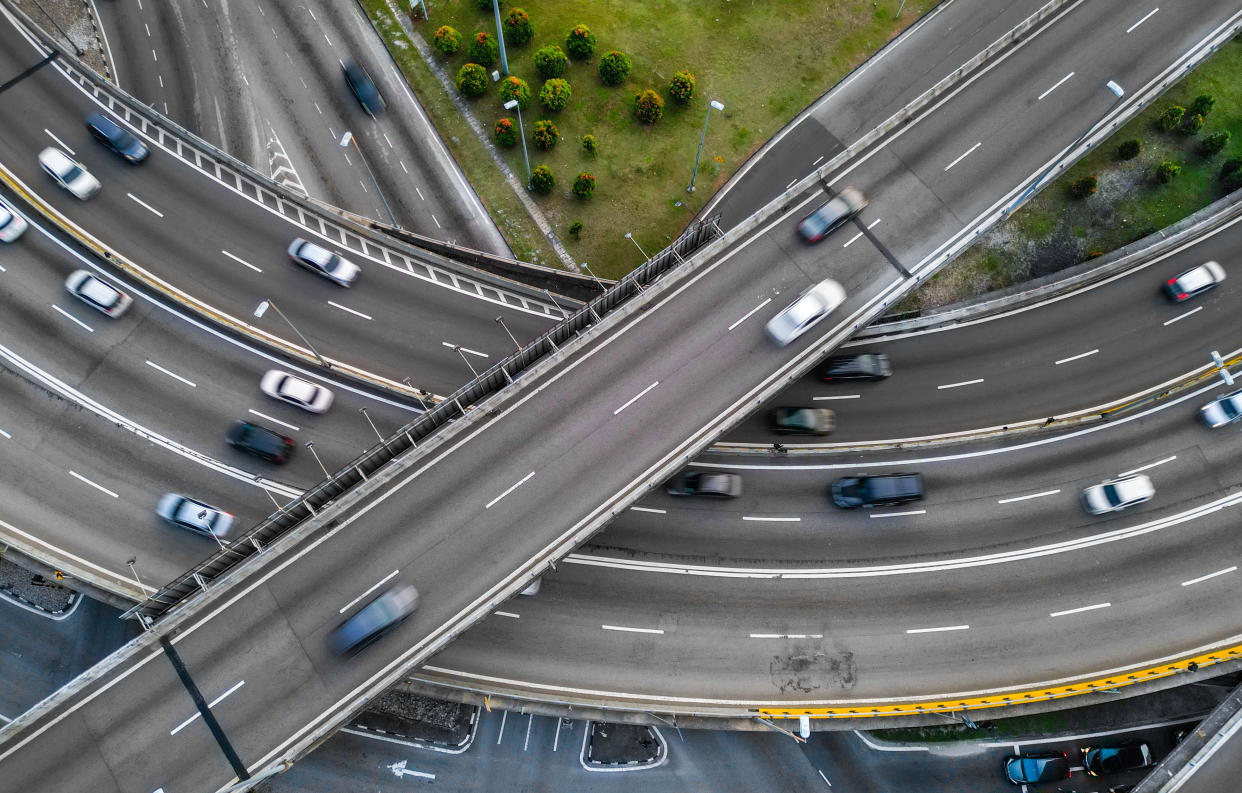What is a ‘pay-per-mile’ scheme and how might it work in Britain?

An MP has hit out at rumours the government is considering implementing a pay-per-mile scheme to make up for the shortfall caused by electric vehicle drivers not paying fuel duty.
Pay-per-mile schemes work as they sound - drivers would be taxed based on how much they drove on British roads. The idea has been around for years and it has been suggested as a simpler alternative to fuel duty, but it has gained increased traction with the growth in electric cars.
Chancellor Rachel Reeves is understood to be considering such a scheme and was recently urged to implement one by a group of transport industry bodies like the RAC. Duties levied on petrol, diesel and other fuels currently generate around £25 billion a year in revenue for the Treasury.
My snap survey on recent reports of Labour plans to introduce a pay-per-mile car tax revealed:
❌ 81% of you do not agree motorists should be taxed based on how far they drive
❌ 83% of you said this unfairly targets rural communities
I have written to the Chancellor to… pic.twitter.com/FB4YV0uLkL— Alicia Kearns MP (@aliciakearns) September 12, 2024
On Thursday Conservative MP Alicia Kearns said introducing such a scheme would be disproportionally unfair to people who live in rural communities. She also said it would have a negative impact on armed forces who work far from home, disabled drivers, parents of disabled children and care workers.
She said the average motorist would face £444 worth of costs under the scheme, but those in rural areas who drive more often could face bills of up to £600.
She said she had done a survey of some of her constituents and found 81% disagreed with the idea, but 78% would not consider reducing their car use as a result, effectively counteracting any environmental benefit.
Kearns said: "We should not be penalised because of where we live."
What is a ‘pay-per-mile scheme'?
A ‘pay-per-mile’ scheme sees road users paying a charge based on how far they travel in a given time period.
By 2030, the government could lose £9 billion of fuel tax revenue thanks to electric vehicles, according to accounting firm PwC. A 5p per litre cut in fuel duty was introduced by the Conservative government in March 2022. Before this, fuel level had been frozen at 57.95p since March 2011.
And with Reeves warning Labour is facing a budget ‘black hole’, it’s been suggested that a ‘pay-per-mile’ scheme could help balance the government’s books.
How could it work?
‘Pay-per-mile’ schemes work using either cordons on specific roads, in-car GPS or odometers, or satellite monitoring, with road users often paying in advance.
In ‘pay-per-mile’ schemes in Singapore, users pay more to use roads at peak hours.
Public transport charity Campaign for Better Transport (CBT) has urged Reeves to adopt a pay-per-mile scheme in the UK for electric car drivers.
Other campaigners including the RAC’s head of policy Simon Williams have called for fuel duty to be replaced entirely by a pay-per-mile system.

The proposed scheme from CBT would see drivers of zero-emission vehicles (ZEVs), such as electric cars, being charged based on how far they travel.
Campaigners at the CBT have called for these drivers to pay less than drivers of standard fuel cars, but to be ‘fairly charged’ for their road use.
Under the suggested plan, drivers who buy a ZEV before the implementation date would be exempt from the charge, helping to speed up the switch to electric motoring.
CBT suggested the scheme could work through regular odometer readings (rather than using road cameras or satellites).
What are the pros?
The pros of this week’s proposed ‘pay-per-mile’ system would be to level the playing field between the drivers of petrol- and diesel-powered cars and electric cars and compensate for the expected fall in fuel duty.
Supporters believe a taxation change is inevitable as electric vehicles are adopted more widely, and believe that ‘pay-per-mile’ is the fairest option.
The RAC has also suggested that adopting a pay-per-mile system across both electric vehicles and petrol- and diesel-powered vehicles could mean retailers charge drivers more fairly for petrol and diesel.
RAC head of policy Simon Williams said “We’d normally be against any increase in duty, but we’ve long been saying drivers haven’t been benefiting from the current discount due to much higher-than-average retailer margins.
“As more and more electric vehicles come on to the roads, the government will need to tax drivers differently.
“We think replacing fuel duty with a pay-per-mile system as soon as possible is the way forward as then the only tax levied on fuel would be VAT. This would give retailers nowhere to hide.”
The RAC said retailers’ margins – the difference between what they pay for fuel and the pump price – were 10p per litre for both fuels last week, compared with the long-term average of 8p per litre.
CBT leads a forum consisting of 37 transport-related organisations, which it said would all “support a Treasury move on vehicle taxation”.
The Confederation of Passenger Transport, which represents bus and coach operators, said pay-as-you-go vehicle taxation could “help curb congestion”, making public transport “more attractive”.
CBT director of policy and campaigns Silviya Barrett said: “The new chancellor faces a looming black hole. It should be cheaper to drive a zero-emission vehicle than a more polluting vehicle, but it’s only fair that these drivers should pay a share, and a pay-as-you-drive model can achieve this.”
What are the cons?
Any road pricing scheme would hit people in rural areas or who are reliant on their cars more than other road users as Kearns pointed out in her letter.
Other campaigning groups have claimed that pay-per-mile will be expensive, and comes with privacy concerns over how drivers are tracked.
The policy would also likely have a negative impact on workers who rely heavily on their cars, especially in the care industry with carers relying heavily on their own vehicles to get around.
It would also be burdensome for people who use their cars regularly in areas that do not have good public transport networks.
It’s also been suggested that such measures are ‘regressive’, targeting people on lower incomes the most.
The Alliance of British Drivers spokesperson Ian Taylor said: “We still do not like the principle of road pricing.”
“It’s regressive taxation, plus the means of implementation doesn’t come cheap and will involve tracking people’s movements all the time which comes with its own privacy concerns.”


